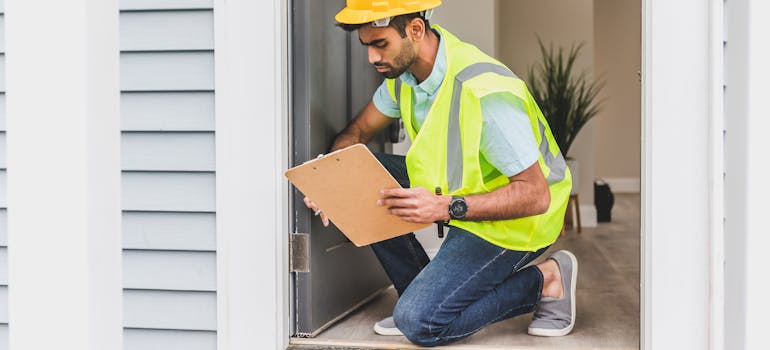Are you buying a new home? It’s a big step! You’re probably excited and maybe a bit nervous. That’s normal. While you’re on this journey, remember, what you say matters as much as what you do. Sometimes, the wrong phrase can throw a wrench in your plans. In this piece, we’re going to talk about what not to say when buying a new home. It will help you keep your negotiations smooth and your experience positive.
Navigating Budget Conversations
Discussing your budget when buying a home can be tricky. It’s a bit like revealing your hand in a card game – you don’t want to give away too much. Here are a few pointers to help you when you’re talking about money with the seller:
- Avoid stating your maximum budget This can limit your negotiation space.
- If asked, provide a range rather than a specific figure.
- Focus on the value of the home versus its price, rather than what you can or can’t afford.
- Be vague but polite if pressed about your financial limits; you could say, “We’re looking for the best value within our comfortable range.”
Essentially, keeping your cards close to your chest regarding your budget can lead to better negotiation outcomes.
Don’t get overexcited in front of the seller
When you find a home that feels just right, it’s hard not to show how much you love it. But in the realm of home buying, keeping your excitement in check can be extremely important. The thing is, revealing too much enthusiasm might give the seller an upper hand in negotiations. They could stick to their asking price, knowing you’re already hooked. It’s like when you’re planning a move and comparing moving services DC companies offer – you wouldn’t tell a company they’re your only option, right? Instead, approach the situation like a pro: acknowledge the positives of the property but balance them with a thoughtful analysis. This way, you come across as interested but not desperate. This approach leaves room for negotiation, helping you get a fair deal while still landing the home of your dreams. Remember, it’s all about striking the right balance!

Find the right words for property flaws
While it’s important to notice the flaws in a property, how you talk about them matters. Instead of blatantly criticizing their work, you should point out areas for improvement respectfully. Harsh criticism can turn off sellers and potentially sour the deal. For example, instead of saying “This kitchen is outdated and ugly,” you might say, “Updating the kitchen could enhance this home’s appeal.” This way, you show you’re serious about the property and are thinking of ways to improve it, rather than just focusing on the negatives. It’s all about constructive feedback – it keeps the door open for negotiations and maintains a positive relationship with the seller.
Be careful when you’re asking questions about the neighborhood
Asking about the neighborhood is a natural part of buying a home, but how you phrase these questions is important. For instance, if you’re planning to hire furniture movers Washington DC is home to, you wouldn’t ask them personal questions about their neighbors. Similarly, avoid asking the seller about the personal lives or demographics of the neighbors. This can come off as intrusive or even discriminatory. A better approach is to research the neighborhood yourself or ask general questions about community amenities, safety, or schools. This way, you get the information you need without overstepping boundaries. Even though it’s fine to be curious about the area you might move to, always keep your questions respectful and relevant to the property you’re considering. This approach helps maintain a professional tone and keeps the focus on the property itself.

Tactful talk about renovations
As you explore a potential new residence, the urge to brainstorm aloud about future improvements may arise. Discussing significant alterations could potentially deter sellers, particularly if these adjustments involve modifications to features, they cherish or have heavily invested in. Instead, maintain a private record of your envisioned changes for later consideration. This approach prevents any unintentional devaluing of the current state of their home and keeps the negotiations smooth. It’s always important to respect the person you’re dealing with. Once you’ve secured the property and the local DC movers are on their way with your belongings, you’ll have plenty of opportunities to change whatever you want in your new home.
Keep personal details private
When you’re buying a home, there’s a lot you might want to share, especially if you’re excited or in a hurry. However, personal details, like why you’re moving quickly, can work against you, these are things not to say when buying a new home. It’s similar to discussing your relationship problems with movers DC area provides – it might lead to not being taken seriously. Instead, focus on the property and the transaction. Keep your reasons and urgency to yourself. This way, you maintain leverage in negotiations. In the end, the goal is to create a positive and professional atmosphere that leads to the best outcome for your new home purchase.
“I don’t need a home inspection” is a thing not to say when buying a new home
Skipping home inspections and other formalities can be tempting, especially in a competitive market, but it’s a risky move. Here’s a quick list of why they’re so important:
- Inspections uncover hidden issues. They can reveal problems you can’t see during a showing.
- They provide leverage for negotiations. If issues are found, you can negotiate repairs or a lower price.
- They help you plan for the future. Knowing the home’s condition helps with budgeting for repairs and maintenance.
- They give peace of mind. Confirming the property is in good condition or knowing what needs fixing is reassuring.
So, before the words “No, the inspection won’t be necessary” leave your mouth, do a bit of research and think again about this issue.

The art of smart home-buying conversation
Although there are many more things not to say when buying a new home, these are the main and most harmful ones. Make sure you don’t forget that the process of buying a home isn’t just about finding the right place. It’s also about handling conversations wisely. The words you choose can influence the deal more than you think. Avoiding the wrong phrases helps keep the process smooth and tilt things in your favor. Keep these tips in mind, and you’ll be on your way to successfully navigating one of life’s biggest milestones.


